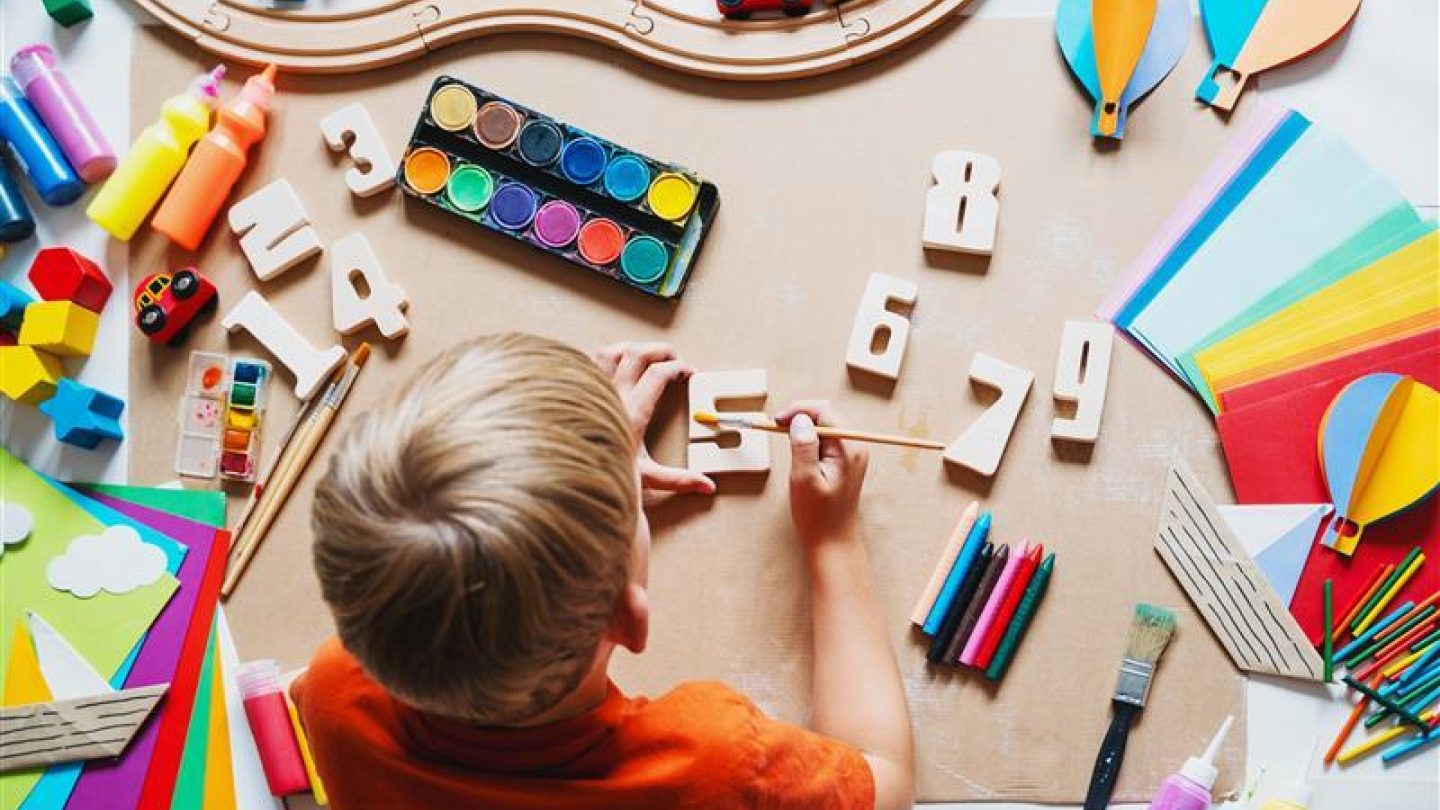The importance of play
 Image: Top-down view of primary school-aged boy painting wooden numbers.
Image: Top-down view of primary school-aged boy painting wooden numbers.
It’s easy to overlook the simple but vital role of play in a child’s development. Play is far more than just entertainment, it’s how children explore the world, develop key skills, and build emotional resilience. Whether it’s a game of hide-and-seek, imaginative storytelling or building a fort out of cushions, play is the foundation of learning and growth.
Why play matters
From the earliest age, play supports all areas of a child’s development. It nurtures creativity, problem-solving and social skills. Physically, it helps improve coordination and fitness. Emotionally, it allows children to express feelings, work through anxieties and develop self-confidence.
Play also fosters independence and resilience. When children engage in unstructured play, they make their own decisions, take risks and learn from mistakes — all important skills they’ll carry into adulthood.


